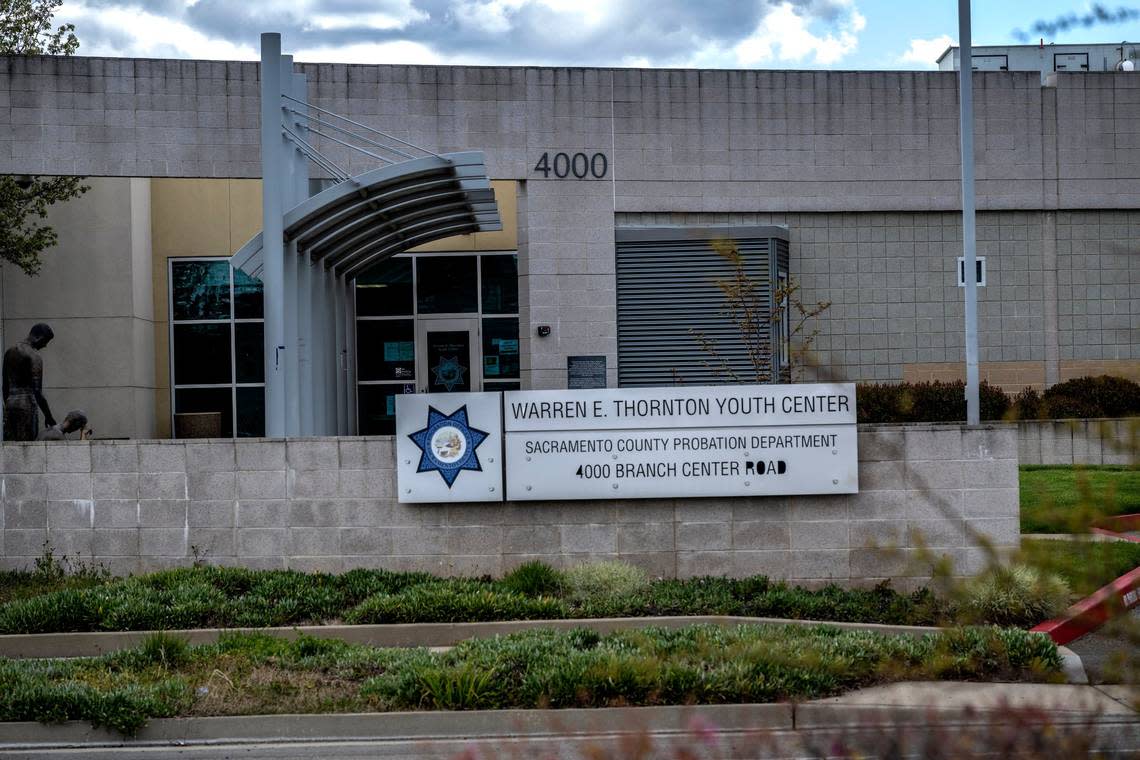Sacramento County doesn’t consider foster teen safety a ‘high priority,’ grand jury report says

A scathing grand jury report released Thursday criticized the care for foster teens who go without a safe place to sleep because their safety is not considered a “high priority” for Sacramento County officials.
A seventh-month investigation by the 2023-24 Sacramento County grand jury found what it called “startling inattention and continuous lack of planning” for foster teens.
“These foster teenagers are virtually invisible to county bureaucracy,” Steve Caruso, the grand jury foreperson, said in a news release. “The grand jury investigation even found the Child Protective Services (CPS) oversight committee does not examine or report on this festering problem to the Board of Supervisors, who are ultimately responsible for the safety of these minor children.”
Sacramento County, since 2016, has housed foster teens in a neighborhood with “easy access to vice and crime, in office buildings with no kitchens or showers, and in a jail-like former youth detention facility,” according to the grand jury’s 10-page report.
Under the approval of the county’s Department of Child, Family and Adult Services, the county’s Child Protective Services Division is responsible for the day-to-day care of these teens. The grand jury said it discovered that an oversight committee, created to advise the county’s Board of Supervisors, “pays little or no attention to this festering problem.”
Macy Obernuefemann, a spokesperson for the Department of Child, Family and Adult Services, said department officials have received the grand jury’s report on foster teens.
“The department is reviewing the recommendations and preparing a response for the county’s Board of Supervisors,” Obernuefemann said in an emailed statement to The Sacramento Bee. “The health and safety of all youth placed in the county’s care and custody remain the department’s top priority.”
The Continuum of Care Reform, a California law passed in 2015, phased out most group homes in favor of family placements as the best way to keep more kids in school and out of jail. Since California started implementing the reforms, the number of foster children living in congregate care settings has dropped significantly.
The grand jury investigation found that the county’s lack of long-term planning has resulted in Child Protective Services “being reactive instead of proactive” in addressing the changes required by the 2015 state reforms intended to bring sweeping changes to the foster care system, according to the report.
The county’s CPS provides only three “Welcome Homes” that “appear home-like and less institutional” but are not state-licensed and “continue to be an unsafe environment for foster teenagers and staff,” according to the grand jury report. CPS opened a fourth home operated by an outside nonprofit organization, which quickly attained a license.
The “Welcome Homes” opened with around-the-clock personnel “inadequately trained and prepared,” the grand jury said its investigation revealed, and CPS relies on social workers, probation aides and supervisors to step in, which has resulted in costly overtime pay.
“Labor leaders reported employees have been subjected to harsh conditions, unclear procedures, physical abuse, and critical incidents involving teenagers, for which they have not been adequately prepared or trained,” according to the grand jury report. “Moreover, due to the lack of preparedness, direction, and leadership, foster teenagers have been exposed to problems such as drugs, alcohol, physical abuse, truancy, and sex trafficking.”
On average, about 1,200 foster children are under the care of CPS. Most of these children are successfully placed in appropriate home-based settings. The grand jury said it learned that an estimated 40 to 50 unplaced foster teens every night are either temporarily housed by CPS or missing and labeled “Absent Without Leave“ — and they may not have a safe place to sleep and stay away from violence, drugs and alcohol or becoming prey to sex trafficking.
“The grand jury investigation found Sacramento County knew years ago state law would require the closure of group homes for foster teens, but the CPS did no long-term planning to meet the new need,” Caruso said in the news release.
Among a list of recommendations, the grand jury urged the county to hire staff with practical work experience in congregate living quarters, partner with nongovernmental agencies that operate licensed facilities and immediately implement stronger measures to eliminate drug and alcohol use, possession of weapons and sex trafficking at the “Welcome Homes.”
“The Grand Jury also strongly recommends that CPS report on what is happening at the current facilities,” Caruso said in the news release. “The Board of Supervisors and the public need to understand the severity of the situation in order to begin to truly care for these teenagers who depend on the county.”
The grand jury requested responses to its recommendations within 90 days from the county agencies responsible for these foster teens, along with responses from the Sacramento County Children’s Coalition and the Child Protective System Oversight Committee.

